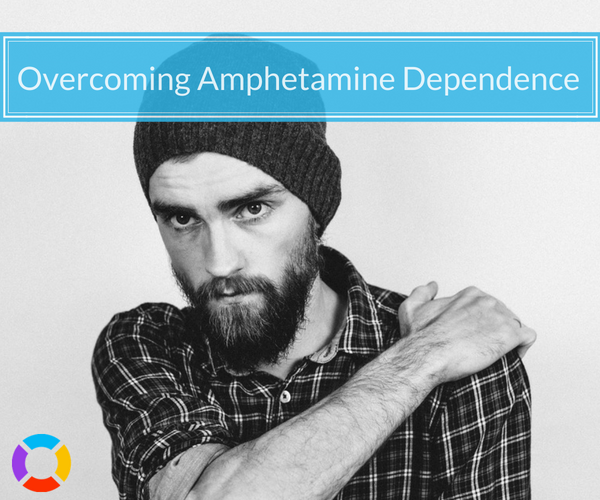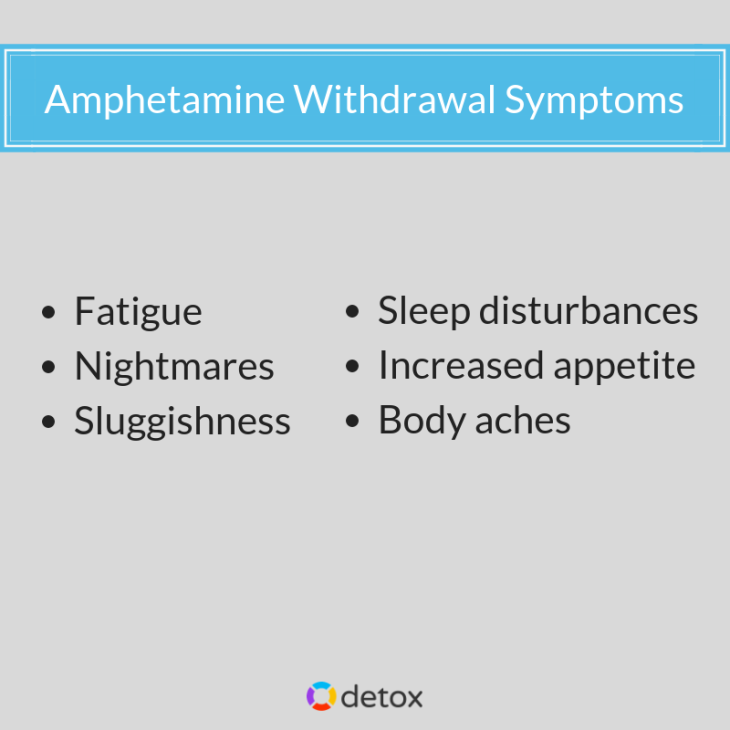Amphetamine Detox: Withdrawal Timeline, Symptoms & What to Expect During Recovery

Amphetamines are a class of stimulant drugs that include amphetamine, dextroamphetamine, and methamphetamine. As amphetamine is the common or parent drug, they are similar in the effects they cause and have different uses. Many people take amphetamines as a focus drug to help them with ADHD. Because these drugs are addictive and cause side effects like wakefulness and weight loss, they are often abused. A person can easily become addicted to amphetamine and may need to seek treatment for this issue. Amphetamine detox is where the recovery begins.
We can help you find a detox program; call 800-996-6135 now.
Amphetamine Withdrawal
What is it like when someone experiences withdrawal from amphetamine? The drug is highly addictive and can cause physical and psychological withdrawal symptoms. Depending on the person, some of the symptoms he or she may experience during amphetamine withdrawal include:
- Fatigue
- Nightmares
- Slowness or sluggishness
- Disturbed sleep patterns
- Increase in appetite
- Body or muscle aches

Depending on the addiction and the drug or drugs involved, the person’s withdrawal experience could become much worse. Methamphetamine can cause very severe withdrawal symptoms that may border on psychosis while amphetamine can cause intense symptoms as well if the person has been abusing it in high doses.
Withdrawal Timeline
Those who choose the first step toward healing find themselves in the early stages of amphetamine withdrawal rather quickly. Within the first three days following the last dose of any amphetamine side effects such as headaches and dizziness, are likely to occur. During this time, relapse is most likely to occur, but support can help you get through this challenging period of early recovery.
To help you better understand the withdrawal process, we’ve compiled the following timeline of symptoms that most amphetamine abusers find themselves struggling with when they enter detox:
- The first 36 hours: During this time cravings are strong and the desire to “feel better” is often enough to make you change your course of action. Don’t be fooled, though. This period is short, and the cravings will begin to dissipate in a few more days if you remain strong. Depression and irritability are common during the first few days but these symptoms will also lighten up as you progress through the withdrawal process.
- Week 1: Towards the end of your first full week without amphetamines, you will begin to feel much better. Cravings are lessening with each day you remain clean and the worst symptoms of amphetamine withdrawal are passed. Although you may still feel tired, headaches and general irritability are likely gone by now.
- Week 2: Many recovering addicts begin to experience heightened insomnia during this stage of recovery. If you’re working with an amphetamine detox center, you may be given medication to help you sleep at night. Certain foods, herbal supplements and staying active during the daytime hours can all help you to get better sleep at night.
- Week 3: At this point, you’ve nearly made it a month without amphetamines and you’re likely feeling almost “normal” again. The drugs are no longer in your system and this means your detox is complete. However, your journey to recovery is just beginning. Be sure to seek long term counseling and care to ensure your continued success in recovery.
What Happens in Amphetamine Detox?
Someone going through amphetamine detox will likely feel very irritable and frustrated. The disturbance of sleep patterns will be difficult on the person, as will the discomfort and sluggishness after he or she is used to being high often on amphetamine. Many people are also used to the binge crash cycle of abusing amphetamine, where the user takes a large amount of the drug to feel high and stay awake for several days.
In amphetamine detox, a person is treated through his or her withdrawal symptoms as the amphetamine leaves the body. Many types of clinics conduct amphetamine detox, including both inpatient centers and outpatient centers. A person who chooses to detox in an inpatient center will likely be without a strong family or friend support system while someone who chooses outpatient care will be able to go through detox while living outside of the clinic. Inpatient care is ideal for those who do not have much support at home because they will receive it at the hospital. It is also necessary for many people who have more severe addictions.
If you or someone you love is suffering from an addiction to amphetamines, help is available. Reach out to us today or browse our list of local detox centers to find one near you and take the first step toward a healthier, happier, drug-free life.


